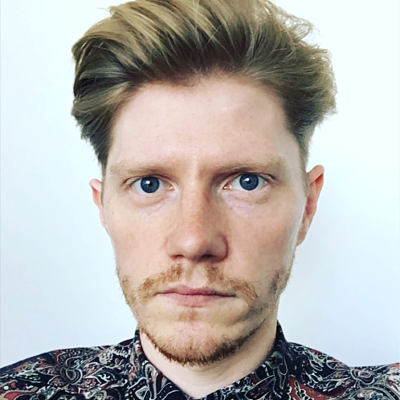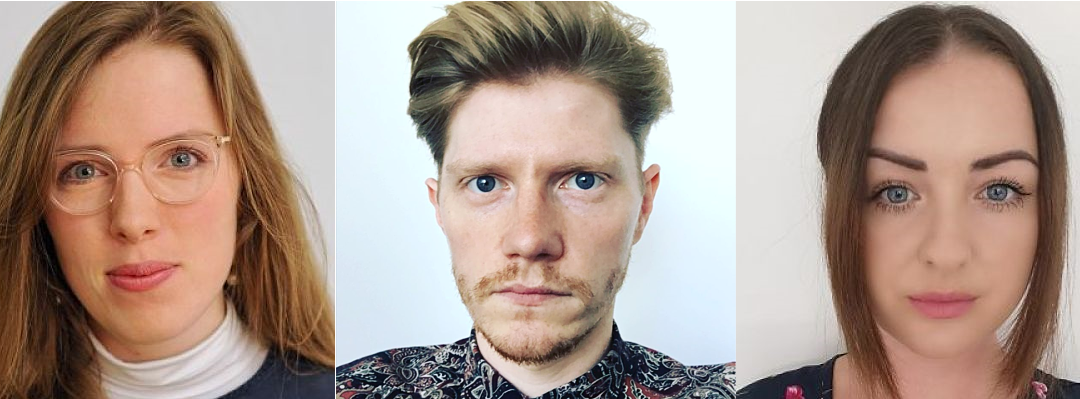Three nominees have been shortlisted for the UKRN 2022 Dorothy Bishop Early Career Researcher Prize.
- Dr Amy Orben
- Dr Charlotte Pennington
- Dr Samuel Westwood
The UKRN Advisory Board shortlisted from a pool of 12 nominees and 30 nominations, based its assessment on the criteria:
- Evidence of a sustained contribution towards the promotion and delivery of activities that have served to improve research quality in the UK,
- and, alignment with the mission and values of UKRN.
The chair of the Advisory Board, Sarah de Rijcke, offered the comment “All the prize nominees are frontrunners in responsible research practice in their field. They are not only intrinsically motivated to lead by example, but they also affect real change by setting up new initiatives at their universities, raising awareness, providing training, and doing important advocacy work in advisory committees and governing bodies to foster a healthy research culture.”
Profiles of the shortlisted nominees
 |
Dr Amy Orben: Since her PhD Amy has established a proven track record of developing partnerships and initiatives to promote reproducible research on institutional, national and international stages. This includes co-founding ReproducibiliTea, an ECR Open Science journal club initiative which is now present at over 100 universities worldwide. As part of ReproducibiliTea, she built a team that delivered one of the most successful grassroots ECR Open Science initiatives both in the UK and internationally; she also served as Chair of the ReproducibiliTea Steering Committee until early 2020. During her time as Chair, ReproducibiliTea partnered with the UK Reproducibility Network, won funding, launched a podcast, built a web presence, hosted multiple workshops, and was featured in Nature. It has motivated many ECRs to adopt Open Science practices and empowered them to advocate for change in their departments.
At the University of Cambridge, Amy now sits on the senior Steering Committee for Open Research and chairs her departmental MRC Cognition and Brain Sciences Unit Open Science Committee. Over the last year she has been integral in designing and establishing an innovative institutional Rights Retention trail that will be launched at Cambridge in April 2022 and will provide a new way of researchers to engage in Open Access publishing. Furthermore, Amy designed and now delivers a highly successful annual 16-hour graduate lecture course in “Robust Behavioural Science” to students across multiple university departments. The course provides a foundational education in reproducible research and open science, educating the next generation of researchers in this space. |
 |
Dr Charlotte Pennington: Charlotte is a Lecturer in Psychology at Aston University, with research interests in addictive behaviours and social cognition. Charlotte has a passion for methodology, open science and reproducibility. She conducts work on the reliability of experimental measures with a view to improving ways to measure human behaviour, is involved in several meta-research projects evaluating the effectiveness of study preregistration, and advocates for big team science within her own research discipline of addiction science. She is Aston’s Local Network Lead of the UK Reproducibility Network (UKRN), organises the Aston ReproducibilTEA journal club, and is an Action Editor/Recommender for Addiction Research & Theory, and Peer Community In Registered Reports. Charlotte is particularly motivated to embed open science into teaching and pedagogy: she is a member of the Framework for Open & Reproducible Research Training (FORRT), a partner of the GW4 Student-Research Consortium, and is currently writing a book for Open University Press titled “A Student’s Guide to Open Science: Using the Replication Crisis to Reform Psychology”. Charlotte aims to lower barriers to the uptake and adoption of open science by training and teaching students and researchers across all career levels. |
 |
Dr Samuel Westwood: Samuel is a lecturer in Psychology currently based at the University of Westminster. He’s a keen advocate for best practice in academic research, and invests considerable time to lowering barriers of entry into open and transparent research practices. For instance, in 2018 he founded the RIOT Science Club, a seminar series that provides training in open scholarship practices, which is now franchised to several universities in the UK and Europe. The RIOTS Club draws attendees from across the globe, has a combined Twitter/YouTube following of 6,000, and the recordings of seminars are used in undergraduate modules in several UK universities. With the view of changing policies and procedures to incentivise open research, Samuel has been a proactive local network lead for the UK Reproducibility Network (UKRN) at three universities, and his activities facilitated in signing up Kings College London to the UKRN. These activities include setting up the King’s Open Research Group Initiative (KORGI) and organising several online conferences that have attracted nearly 6,000 views on YouTube. Recently, his work extends to easing senior academics into open research, and helping to incorporate open scholarship into higher education. |




